- Home
- slideshows
- miscellaneous
- I've been through the eye of a Category 4 hurricane - here are 7 things you should do to protect your money before and after
I've been through the eye of a Category 4 hurricane - here are 7 things you should do to protect your money before and after
Manage bills and paychecks in advance

You'll need cash
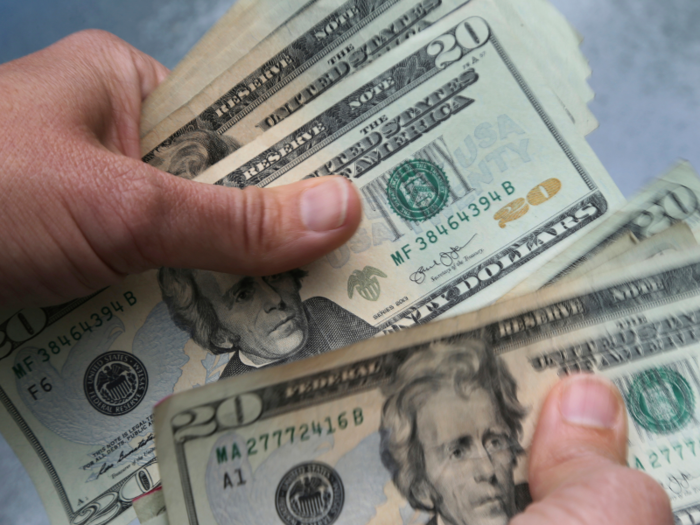
In addition to having an emergency fund, you'll also want backup cash in small bills — when the power is out, there will be no other way to pay for supplies or gas (if there's any available), and you won't have access to an ATM for withdrawals.
There's no rule of thumb on how much money you'll need; it's up to your discretion. But after my first hurricane, my neighborhood was without power for nearly three weeks — it's better to overestimate.
Don't safeguard important documents in the dishwasher
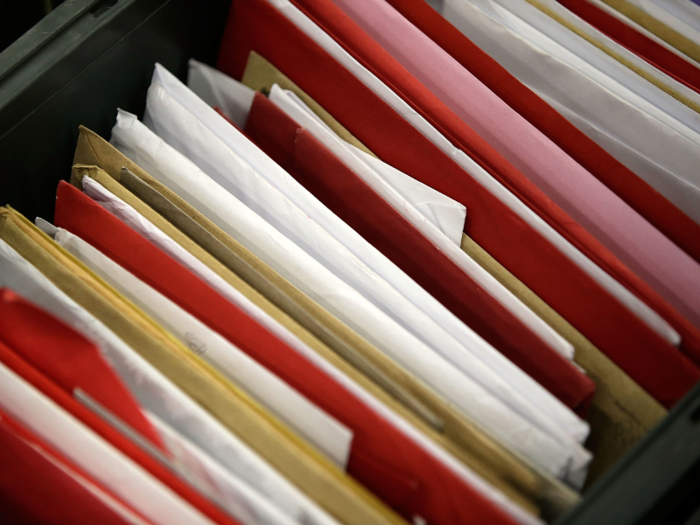
I hate to be the bearer of bad news, but the trick floating around the Internet about storing your valuables and documents in the dishwasher during a hurricane isn't one you should heed. If flooding occurs, a dishwasher won't keep things dry.
You should have photocopies or electronic copies of your personal, home and property, estate, medical, and financial documents stored on a flash drive or on a cloud. Think things like Social Security card, stock and bond certificates, home deeds, passport, and estate planning paperwork.
But if you're down to the chase and don't have time, you should put all documents and cash in tightly sealed Ziploc bags to be placed in a grab-and-go lock box. If you've evacuated or are taking shelter away from your home, you may not be able to get back for days — and you'll need these things on your person.
Beware of scams
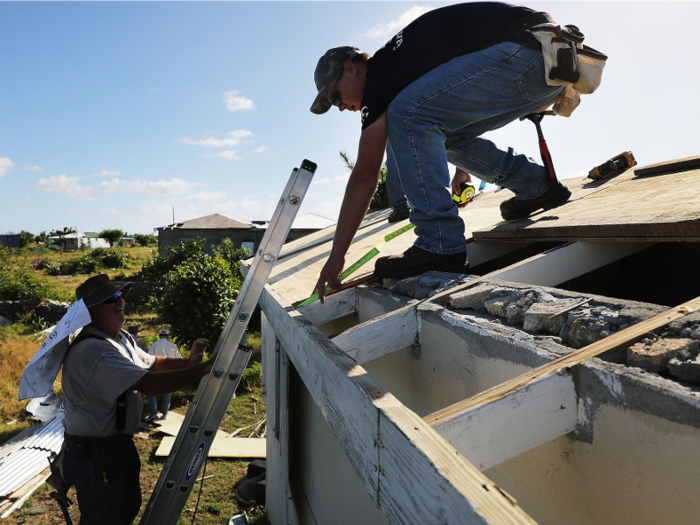
Unfortunately, some people love to take advantage of dire situations — and storm-related scams and fraud are things you'll need to watch out for in the aftermath of a hurricane.
One common one is repair scams. Sometimes, insurers need to recruit independent claims adjusters from out of state — scammers seize this opportunity to exploit homeowners, according to CNBC. Always ask for proof of identity, research consumer-review sites, and leave a paper trail — don't pay in cash and don't pay it all up front.
According to AARP, some scammers even show up on people's doorsteps posing as Federal Emergency Management Agency damage inspectors. You should also be aware of cyber thieves, who can create fake GoFundMe pages or fake charity scams.
Keep an eye out for price gouging
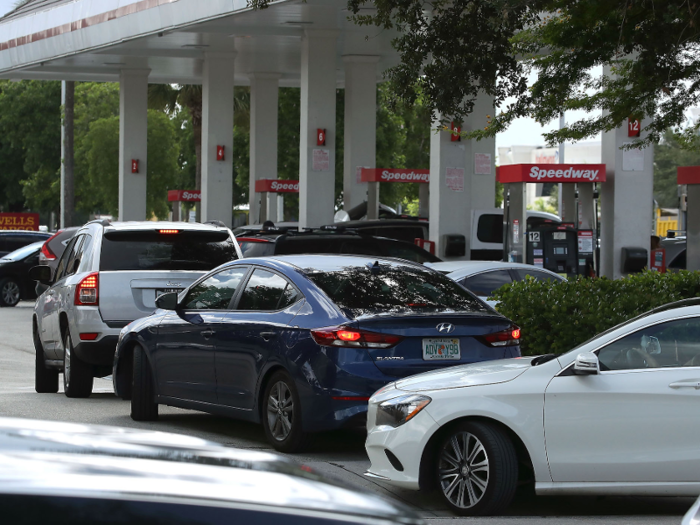
Another way people get exploited during a hurricane? Price gouging. According to The New York Times, a one-way coach flight from Miami to Phoenix shortly before Hurricane Irma increased from $547.50 to $3,258.50.
But it's not just flights you have to worry about — it's also the necessities like food, water, and gas. A six-pack of water was allegedly being sold for $72 during Hurricane Irma.
Some states have laws against price gouging, and there's currently one in effect for North Carolina ahead of Hurricane Florence. You can report price gouging by calling 1-877-5-NO-SCAM or filing a complaint at www.ncdoj.gov.
It might be tough to save money on emergency supplies
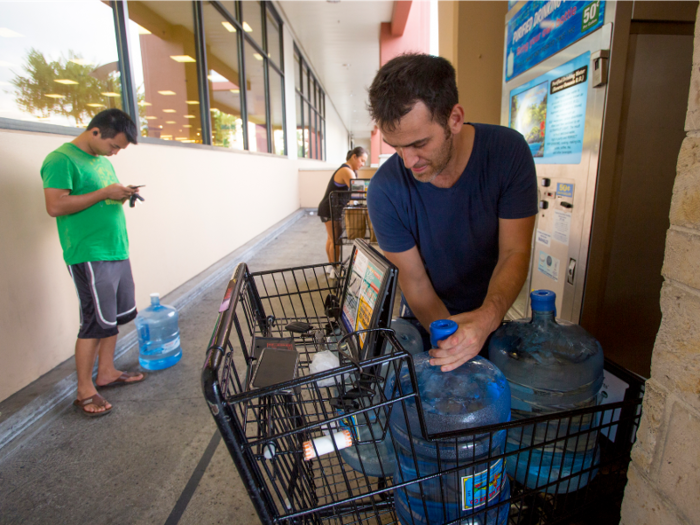
It can be hard to save money on hurricane supplies if you didn't purchase them in advance of the season with deals and coupons — especially as supplies run low and price gouging takes effect while the hurricane looms. From flashlights to first aid kits, there's a lot to get.
But you can make the most of your money if you know what to get. For example, don't stock up on food that needs to be refrigerated — it'll go to waste once the power dies if you don't have a back-up generator (and even those can fail sometimes). Opt for non-perishable foods like canned goods instead.
You can also make the most of what you have at home — take batteries from the remote control to use for your flashlight or fill up empty water jugs and water bottles with tap water (if it's drinkable) before the storm so you don't have to buy as much water at the store.
Check your insurance details
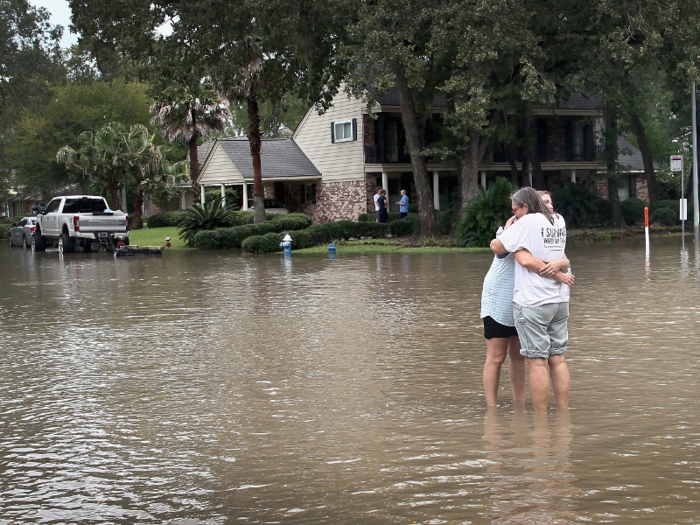
Insurance is arguably one of the most complicated financial aspects of a hurricane. Before the storm, you should review and understand your homeowners' insurance policy to ensure what valuables are protected in the event of loss or damage.
Something to pay attention to is "actual cash value coverage" versus "replacement cost coverage." The former pays the price of possessions minus depreciation; the latter pays to replace the possessions, a form of more complete coverage.
Not all policies have flood insurance. Only 17% of the homes in the eight counties Hurricane Harvey hit had flood insurance. FEMA can provide assistance in the form of private charity and grants, but the process can take weeks or even months, a delay that could potentially put people into debt. According to Reuters, the average FEMA payout to victims of Hurricane Katrina was just $7,114, and $8,016 for Sandy.
You'll need to file a claim with photo documentation and make an appointment for an adjustor.
Popular Right Now
Popular Keywords
Advertisement